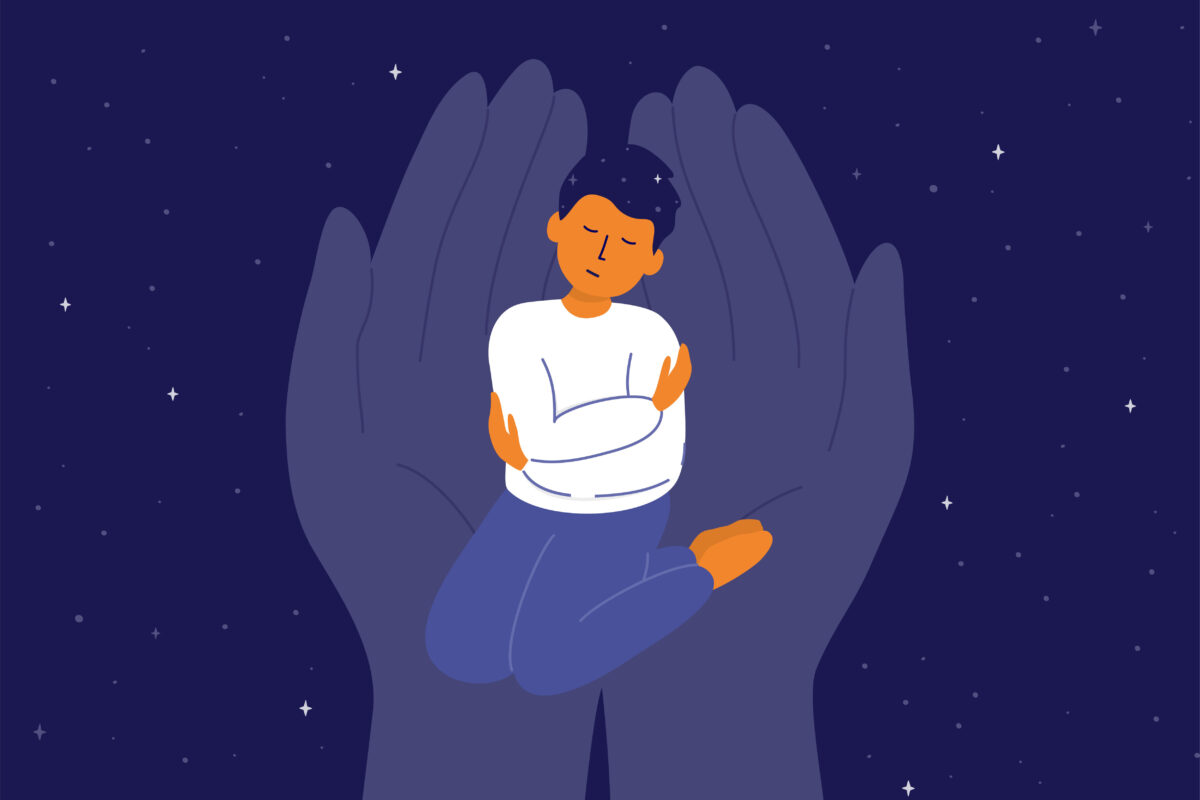Body image. These two simple words don’t seem big enough to contain my enormous apprehension when they come up in relation to my kid. As someone whose unhealthy relationship to body image started around age 9 (with an eating disorder beginning around 12), I am all too familiar with the darker side of struggling with one’s body image.
Since my teens, I’ve inhaled all kinds of content related to body positivity and self-worth that’s not based on body image. When I became a parent, I made sure that in my house, we use body positive language, discuss any body shaming or jokes we see on TV or in books, and proclaim that all bodies are different and equally important.
However, despite all my tireless and intentional efforts, I still couldn’t shield my son from that ubiquitous, heart-wrenching experience of childhood: being bullied and made fun of for not being a skinny kid. It absolutely broke my heart the first time he finally started saying out loud how much he hated that people always comment on his body (even if it’s an innocuous, “Wow, look how tall you are!”), and how kids say ignorant, mean things to him. It crushed me when he expressed how much it made him not like himself.
While, unfortunately, I can’t shield him from all the fatphobia, ableism and body shaming out in the world, I can do my best as his mother to give him a foundation that will help him navigate a world that places so much pressure, expectation and value on how we look. I could rant on and on about how mainstream beauty standards exclude and harm many minorities; how the beauty and diet industry make billions of dollars every year (so, of course, they need us to keep feeling badly about ourselves, because it’s good for business); or how our bodies are so much more than just ornaments.
However, building a foundation for a healthy relationship with self-image doesn’t have to be that complicated, especially when you’re talking to your kids about it. In fact, it can be summed up — Jewishly — in two words: b’tzelem elohim.
The Jewish concept of b’tzelem elohim is a great foundation upon which to build your child’s (and your own!) relationship to body image. We first hear about b’tzelem elohim in the Torah during the creation of Adam and Eve: They are described as having been created b’tzelem elohim, “in God’s image.” The actual mitzvah that goes with this value is called Shmirat HaGuf, “guarding the body,” as described in the Torah: “Guard yourself and guard your soul very carefully.”
Maybe your kid, like mine, doesn’t necessarily believe in God (and is a vocal questioning Jew) — or maybe you just like to avoid having them feel like they are sitting through a Sunday school lesson and watching them roll their eyes at you. Whatever is the case, you can explain it this way: B’tzelem elohim means that every person is sacred and important — inside and out. Judaism compares our bodies and selves to a god-like level of holiness, so that we’ll realize just how important it is to care for our bodies and emotions! In fact, caring for yourself and respecting yourself is an actual mitzvah.
This is also a great jumping point into more conversations about how to fulfill body-related mitzvot. In our house, we talk about how it’s important to take good care of our bodies by feeding them the right amounts of nutritious foods, getting enough movement in ways we enjoy, drinking enough water, getting enough sleep and caring for our emotions. If one of those things is out of balance, you don’t have to feel bad about yourself — you can just work on doing more or less of it. However you look on the outside when you are doing these things is exactly the way your body is supposed to look, because caring for ourselves shouldn’t be appearance-based, but rather based on physical and emotional wellbeing.
Not that we don’t all struggle with how we look sometimes. I’ve told my son before that some days, you will not feel good about your body, and that’s a normal feeling we all experience. But the bad feeling will not always be there. I try to set expectations for those tough days when you don’t like how you look or how your body works: Tell yourself “I’m not feeling good about myself today. I must need some extra care,” and then be sure to give your body whatever it needs — including lots of water, nutritious food and rest. Be gentle and nurture yourself until you feel better. It’s a mitzvah, after all.
Our kids will still struggle, have their feelings hurt and not like themselves some days — and that’s painful to think about as a parent. But if we can establish b’tzelem elohim as part of their default view of the world, then we will be giving them a leg up anytime they set foot out in the world. When they do, my dearest hope is that they go out the door with a vibrant, glowing sense of self-worth and self-compassion that’s tucked safely away inside them, always accessible and always ready for them to lean on.








